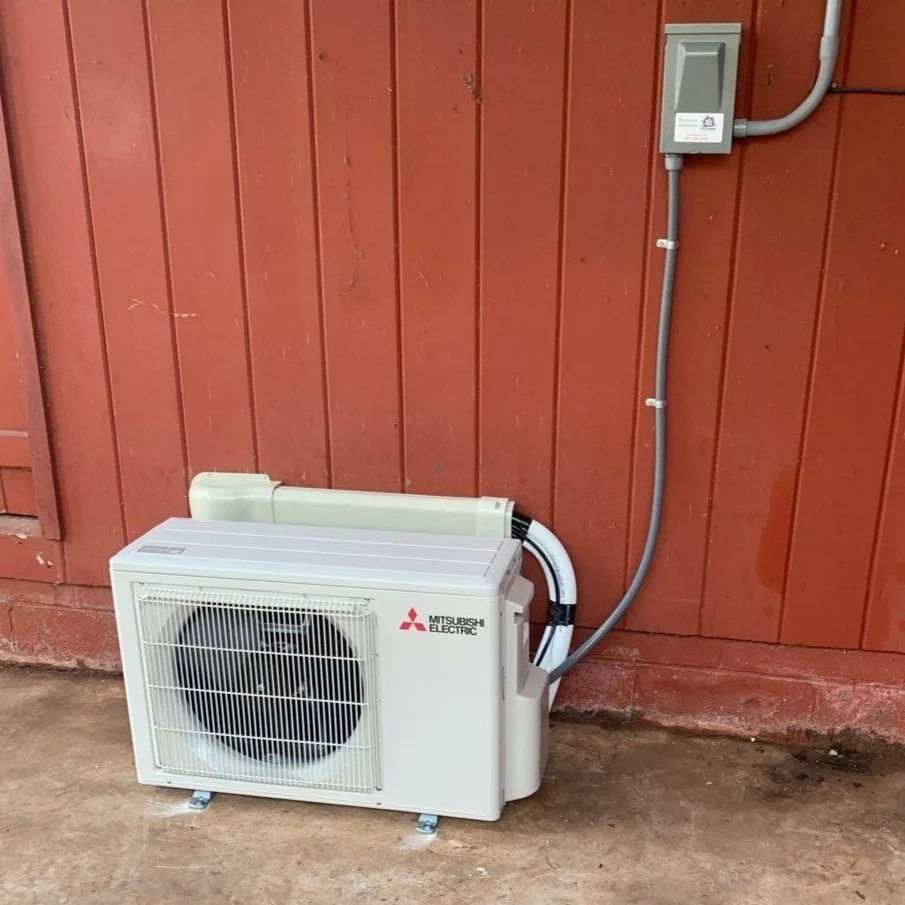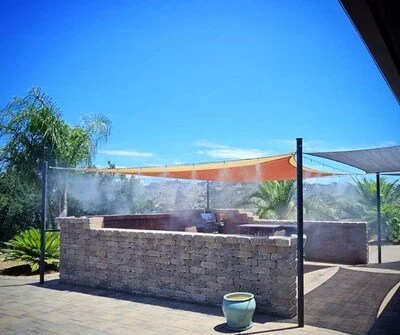Understanding Air Conditioning Warranty and Coverage
Are you confused about your air conditioner’s warranty? You’re not alone. Understanding air conditioning warranty and coverage can be a minefield of terms and conditions. Can a warranty save you from an expensive repair down the line? We’re here to make it clear. This article demystifies the essentials - duration, coverage, claims, and exclusions - so you can rest easy knowing your AC is protected. Dive in to find out exactly what your coverage entails and how to ensure it remains in force.
Key Takeaways
Air conditioning warranties vary in length with many ranging from 3 to 10 years, and specifics like transferability and the need to register within a certain time frame play crucial roles in the warranty’s validity and extent of coverage.
Warranty coverage typically includes critical AC components such as compressors and coils, while exclusions often encompass labor costs, routine wear and tear, and damage from ‘acts of God’, with extended warranty options available for additional protection.
The value of an AC warranty depends on the quality of the system, the terms of the coverage, and the owner’s risk tolerance, and while longer warranties provide peace of mind, regular maintenance is key for ensuring warranty validity and the system’s longevity.
Deciphering the Duration of Your Air Conditioning Warranty
The duration of your air conditioning warranty is not a one-size-fits-all scenario. It typically ranges from 3 to 10 years, with most falling within the 3 to 5-year range. This range can extend to a 10-year limited parts warranty or even a lifetime warranty for specific components. For instance, new furnaces usually come with a 10-year manufacturer-limited parts warranty and a 20-year warranty on the heat exchanger.
Wondering how to verify the status of your warranty? The answer lies in your original warranty documentation, which provides origination and expiration dates. If those documents are misplaced, contacting the manufacturer or a representative can provide the necessary information.
The average warranty terms for air conditioners include a 1-year warranty for parts and extended coverage for the coil and compressor under a 10-year limited warranty. You must be fully aware of these specific coverage periods and any registration requirements to retain all benefits of your air conditioning system.
Registration Requirements
The process of registering your HVAC product is more than just filling out all the paperwork. It’s a step that can extend your warranty coverage and benefits. For instance, registering an American Standard HVAC product within 60 days of installation can extend the warranty from five years to ten, enhancing the longevity of your coverage. The process involves providing necessary details such as the unit’s serial number and installation date.
If registration is not completed within the required 60-day period, the product defaults to a Base Limited Warranty covering up to five years. You must confirm that your dealer has completed this registration to guarantee extended warranty coverage.
Transferability to New Owners
Imagine buying a house and discovering that the AC unit’s warranty was transferable from the previous owner! This transferability is possible with some manufacturers, provided specific conditions and fees are met. For instance, American Standard offers warranty transfers for units registered after August 1, 2011, with a $99 fee within 90 days of home purchase. However, if the Registered Limited Warranty is not transferred within 90 days of the home’s sale, the new homeowner defaults to any remaining Base Limited Warranty available. As a new homeowner, comprehending these terms and completing the transfer within the allotted timeframe is crucial for uninterrupted coverage.
The Scope of Your AC Warranty: What's Included and Excluded?
The scope of your air conditioning warranty is a vital aspect to understand. Comprehensive warranties should include critical components like compressors, coils, and thermostats. For example, basic air conditioning units often offer a 5-year compressor warranty, which can extend up to 12 years for premium models. Some components, like the heat exchanger, may have extended warranties reflecting their anticipated longer lifespan.
However, the scope of coverage may narrow after initial periods, often shifting to parts-only coverage. You should also be aware that routine wear and tear, along with labor costs for part replacements, are often excluded from manufacturer warranties. Hence, thoroughly comprehending these warranty terms can prevent misunderstandings and keep you informed about what’s covered, how to claim, and the deadlines.
Understanding Exclusions
While warranties provide coverage for a range of situations, it’s equally important to know what isn’t covered. These specific exclusions define scenarios where the warranty does not provide coverage. For instance, certain parts, such as:
sheet metal components
filters
capacitors
contactors
may not be covered under the warranty. Items expected to be replaced during routine maintenance, like furnace filters, capacitors, and contactors, are usually not covered by the manufacturer’s warranty.
Warranties also typically exclude coverage for damage caused by natural disasters, fires, property destruction, and electrical surges, often referred to as ‘acts of God’.
Extended Warranty Options
For those seeking additional peace of mind, extended warranties are an option. These can cover both parts and labor costs that are not usually included in manufacturer’s warranties. The cost of an extended warranty for an air conditioning unit typically ranges from $100 to $300 per year and should be considered valuable if it accounts for no more than 20% of the total HVAC system cost.
Extended warranties offer extra protection, potentially covering labor costs and service charges after the manufacturer’s warranty period concludes.
Evaluating the Value of Air Conditioning Warranties
Evaluating the value of an AC warranty is not just a numbers game; it’s about considering the quality of the system, the coverage offered, and your risk tolerance. Longer warranties may offer peace of mind, but they might not be necessary for newer systems which are less likely to require repairs. On the flip side, shorter warranties could be more cost-effective upfront, yet they increase the risk of the owner incurring repair costs once the warranty expires.
A factor that can significantly enhance the value of air conditioning warranties is regular maintenance. Routine maintenance plans can assist in reducing repair costs over time by facilitating regular inspections and early detection of issues. This aspect of maintenance significantly contributes to the warranty’s value and should be considered in any evaluation.
Navigating Warranty Claims and Procedures
When dealing with warranty claims and procedures, understanding the correct steps is key. Having an HVAC service provider handle your warranty paperwork can ensure that you receive maximum benefit from your warranty and that all registration requirements are properly met.
For warranty claims and general HVAC product questions, it’s best to contact the HVAC manufacturer warranty customer service, which can assist with warranty details and dealer-related inquiries.
Contacting the Right Support
To get the best assistance for your product and warranty needs, you should contact the manufacturer’s customer service or a licensed dealer. These professionals can offer product-specific support requirements. Manufacturers like American Standard, for instance, offer customer service specialists to help with warranty questions and direct you to appropriate dealer resources.
You also need to consult the manufacturer for any particular procedures required before scheduling HVAC system inspections to meet warranty terms.
Required Documentation
When filing a warranty claim, certain documents are critical. The unit’s specific serial number is essential and should be kept readily available for reference. If the original warranty document is lost, keeping a record of the brand, serial number, and model number is key for contacting the manufacturer.
Proof of purchase, the owner’s manual, and detailed maintenance records are also required to keep your HVAC warranty valid. These documents are fundamental to substantiate the claim and preempt disputes with the manufacturer.
The Interplay Between Home Warranty and AC Manufacturer's Warranty
As a homeowner, you might ask, “What if I have a home warranty?” Home warranties complement manufacturer warranties by offering broader coverage over time, including wear and tear, which is not typically covered by manufacturer warranties. Home warranty plans often have coverage limits and may not cover older AC units, which may require reviewing the terms to understand potential coverage gaps.
Manufacturer warranties typically cease after a predetermined period, which differs by brand and may necessitate registration or fulfillment of other conditions for the entire coverage duration. As manufacturer warranties have strict time limits, home warranties can step in to cover repairs for wear and tear on major appliances like AC units over a longer term.
Protecting Your Warranty: Avoid These Pitfalls
Safeguarding your warranty goes beyond merely storing the paperwork safely. It means avoiding common pitfalls that can void a warranty. Having your AC system installed by a licensed professional is critical to avoid early failure and warranty avoidance. Using an untrained or unlicensed contractor for HVAC installation or repairs can void the manufacturer’s warranty.
In addition to installation, many warranties require regular maintenance conducted by licensed professionals. Neglecting these maintenance requirements can result in your warranty being voided.
Lastly, using mismatched, incompatible, or unapproved parts in repairs can void your warranty, as manufacturers typically cover only their parts.
Importance of Professional Installation
Why is a professional installation so important? Here are a few reasons:
It ensures your AC system operates efficiently when you have your air conditioner installed by professionals.
It maintains the system’s warranty validity.
Improper installation by unlicensed individuals can lead to voided warranties.
It can result in inefficient system operation.
It can increase the frequency of breakdowns.
Hence, always assign the installation task to a licensed professional to safeguard your warranty and guarantee efficient operation.
Regular Maintenance and Its Impact on Warranty
Just as your car needs regular oil changes, your AC unit needs regular maintenance to operate at its peak efficiency. Regular maintenance by a professional is usually a requirement for warranty validity, with twice-a-year maintenance commonly recommended. Annual maintenance is vital since its neglect can result in the warranty being voided, as manufacturers frequently check maintenance history during warranty claims.
Manufacturers consider the maintenance history when evaluating warranty claims, making it important to use authorized parts and keep detailed records of all maintenance activities.
When Your Warranty Doesn't Cover: Planning for Repairs and Replacement
What happens when your warranty falls short? Having a plan set for repair and replacement costs is crucial. Home warranties that include air conditioning repair coverage can mitigate the financial impact of HVAC replacements that can cost upwards of $5000, ensuring that repair bills are manageable within budget constraints.
In addition, there are income-based grants and low-interest loans available to senior citizens who need assistance with HVAC equipment repairs and upgrades, supplementing potential state and city-wide financial aid programs. Planning for these unexpected costs can help you maintain a comfortable home without breaking the bank.
Summary
In conclusion, understanding your air conditioning warranty and coverage can save you from unexpected repair costs and ensure a comfortable living environment. Whether it’s deciphering the duration of your warranty, understanding what’s included and excluded, or navigating warranty claims and procedures, each step is crucial. Avoid common pitfalls, and remember, professional installation and regular maintenance are key to protecting your warranty. Don’t leave your comfort to chance - take the time to understand your AC warranty and enjoy the peace of mind it brings.
Frequently Asked Questions
How does an air conditioner warranty work?
An air conditioner warranty functions as an insurance policy, protecting you from manufacturing defects. It covers the cost of parts and, in some cases, labor, if the unit breaks down within the covered period.
Is the AC compressor covered under warranty?
If your AC system is under 10 years old, the compressor is likely covered under the manufacturer's warranty, but you will still need to cover the cost of labor for repairs.
What determines the duration of my air conditioning warranty?
The duration of your air conditioning warranty is determined by factors such as the manufacturer, model, and timely product registration, and typically ranges from 3 to 10 years.
What does the air conditioning warranty cover?
The air conditioning warranty should cover critical components like compressors, coils, and thermostats, but may transition to parts-only coverage after the initial period.
What should I do when my warranty doesn't cover?
Consider exploring options like home warranties, financial assistance programs, and budgeting for repair costs when your warranty doesn't cover. These can help you manage unexpected expenses.








